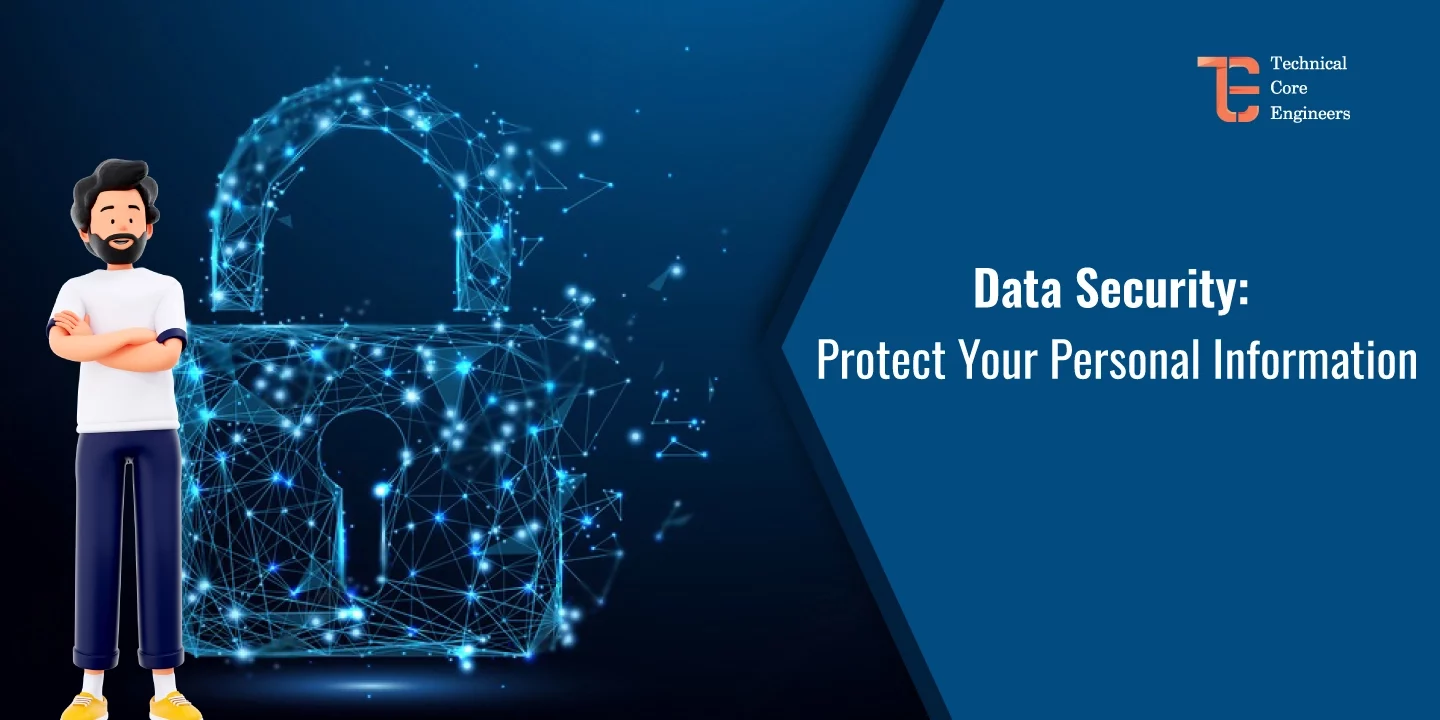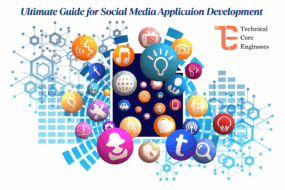- Home
- Digital Technology
- Data Security In Digital Age: ...

Data security is the most important and trending topic in the digital age. We are using various types of data. That is the protect your sensitive data. Moreover, Data security is the protect your information from unauthorized access.
In the digital age, where vast amounts of data are generated, transmitted, and stored electronically. data security has become more critical than ever before. Data security in the digital age refers to the protection of sensitive information from unauthorized access. As well as misuse, or exploitation in the realm of digital technologies.
That is the type of cyber security. When the proliferation of internet connectivity, cloud computing, mobile devices, and online transactions, individuals and organizations. That is constantly generating and sharing large volumes of data.
We, Technical Core Engineers share data security awareness and how to protect personal information from hackers or cyber criminals users.
Data Security Overview
Data security is a vital concept in today’s digital world, where the protection of sensitive information is of paramount importance. It refers to the set of practices, measures, and technologies designed to safeguard data from unauthorized access, alteration, or destruction.
Furthermore, data protection is the process uses to protect your online identity.
Confidentiality: Data security ensures that data is accessible only to authorized individuals or entities. It involves the use of techniques like encryption to encode data and prevent unauthorized users from understanding or accessing its contents.
Integrity: Data integrity ensures that data remains accurate, complete, and unaltered. Data security measures, such as checksums or digital signatures, help detect and prevent unauthorized modifications or tampering of data.
Availability: Data security also focuses on ensuring that data is available to authorized users when needs. This involves implementing measures to prevent disruptions, such as system failures, natural disasters, or cyberattacks, which could lead to data unavailability.
Why Data Security is Important?

Data hackers are opportunities to attack by the sheer volume of data, value, and variety of data available for exploitation. And all they need is just one good haul to make their efforts.
Hackers may benefit from a stolen identity or a credit card that has been hijacked and has a big amount to burn up if they can trick only one customer through a phishing attack, for instance.
There are many reasons why data privacy is important.
- Our personal data can uses to track our movements, our activities, and our interests. This information can then use to target us with advertising or to make decisions about us that could have a significant impact on our lives.
- Personal data can use to discriminate against us. For example, an insurance compnay might deny us coverage because of our healthy history, or an employer might not hire us because of our political views.
- Personal data can use to harm us. For example, our credit card information could be stolen and used to make fraudulent purchases, or our medical records could be leaked and used to blackmail us.
In order to protect our data privacy, we need to be aware of how our data is being collect and used. We should also be careful about what information we share online. Additionally, we should support laws and regulations that protect our data privacy.
Types Of Data That Considered a Data Security
Not all of your information—or bits or bytes—is valuable to hackers. It’s hardly a shocking discovery that may jeopardize your identity or financial stability. If a complete stranger learns that you favor the original Star Wars trilogy over the sequels. What kind of data are so in danger?
Personal Identification Data
The personal identification data includes name, phone number, photos, address, email account name, IP address, and most damaging, your security number.
It also includes information that potentially pinpoints your location. Personal data is often used for identity theft and social engineering.
Also, criminals who have your social security number can open credit card accounts in your name, thereby eventually destroying your credit score.
Personal Payment Data
If it has to do with financial transactions, it’s considerd personal payment data. This information includes credit and debit card numbers including expiration date, online booking numbers, and PIN codes. Criminals who gain access or make purchases.
Personal Health Data
This data category is sometimes referre to as personal health information (PHI). includes details on your medical history, prescription medication usage, health insurance coverage, and doctor and hospital visits. Since they may use your health information to submit bogus insurance claims or acquire and resell prescription medications, high-rolling cybercriminals prize this information highly.
Data security includes a range of procedures and tools, such as:
Access Control
Putting in place authentication and permission controls to manage who may access and use data. Role-based access control, multi-factor authentication, and the usage of strong passwords are all examples of this.
Encryption
Using encryption methods to change data into a format that is unreadable and can only be unlocked with a unique key. As a result, data is protected when being saved, transferred, and even while it is kept on mobile devices or in the cloud.
IDS/IPS
Monitoring and managing incoming and outgoing network traffic by implementing network security procedures. Detecting and preventing unwanted access attempts and possible security breaches is made easier with the use of firewalls and IDS/IPS systems.
Security Storage
Protecting data from loss or theft by using safe storage techniques such as data backups, redundancy, and physical protection measures.Security Awareness and Training
Educating staff members about good data security procedures, making them aware of possible threats, and training them in secure data handling.
Incident Response
Establishing policies and strategies to quickly address and lessen the effects of security incidents, such as data breaches or cyberattacks.
Regulatory Compliance
Ensuring adherence to pertinent laws, rules, and industry standards connected to data security. Such as the Payment Card Industry Data Security Standard (PCI DSS) or the General Data Protection Regulation (GDPR).
Tips For Protecting Your Data
- Be aware of how your data is being collected and used.
- Read the privacy policies of websites and apps before you use them.
- Only share the information that is necessary.
- Use strong passwords and keep them safe.
- Be careful about what information you share on social media.
- Use privacy-enhancing tools, such as ad blockers and VPNs.
- Support laws and regulations that protect your data privacy.
- When available, implement two-factor or multi-factor authentication on the account in order to add an extra layer of security while logging into services.
Data privacy is a complex issue. But it is one that we all need to be aware of. By taking steps to protect our data privacy, we can help to ensure that our personal information is not used in ways that we do not want.





